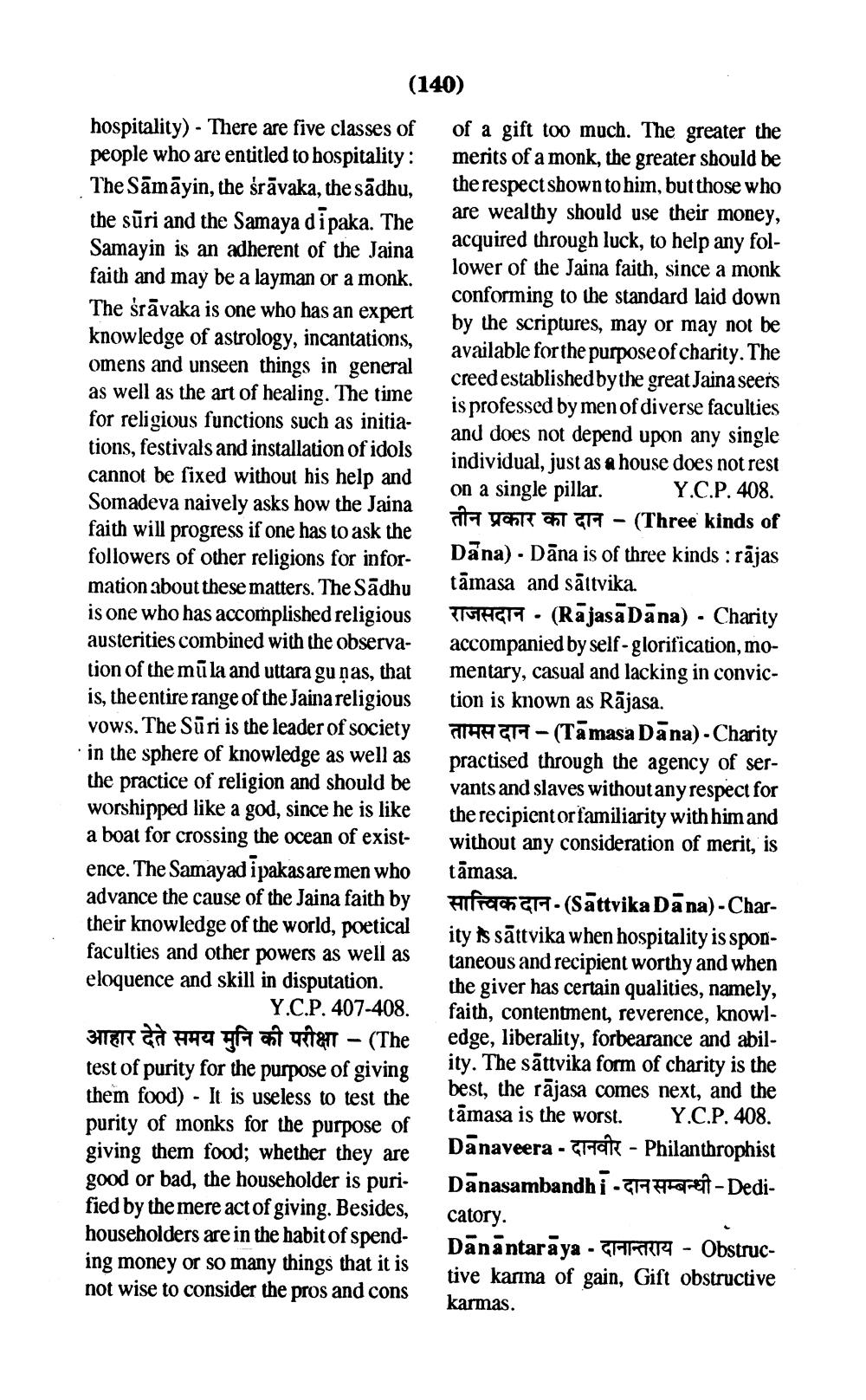________________
(140)
hospitality) - There are five classes of people who are entitled to bospitality: The Sāmāyin, the šrāvaka, the sadhu, the sūri and the Samaya dipaka. The Samayin is an adherent of the Jaina faith and may be a layman or a monk. The šrāvaka is one who has an expert knowledge of astrology, incantations, omens and unseen things in general as well as the art of healing. The time for religious functions such as initiations, festivals and installation of idols cannot be fixed without his help and Somadeva naively asks how the Jaina faith will progress if one has to ask the followers of other religions for information about these matters. The Sadhu is one who has accomplished religious austerities combined with the observation of the mū la and uttara gu ņas, that is, the entire range of the Jaina religious vows. The Sūri is the leader of society in the sphere of knowledge as well as the practice of religion and should be worshipped like a god, since he is like a boat for crossing the ocean of existence. The Samayad i pakas are men who advance the cause of the Jaina faith by their knowledge of the world, poetical faculties and other powers as well as eloquence and skill in disputation.
Y.C.P. 407-408. BITER 749 of an AT - (The test of purity for the purpose of giving them food) - It is useless to test the purity of monks for the purpose of giving them food; whether they are good or bad, the householder is purified by the mere act of giving. Besides, householders are in the habit of spending money or so many things that it is not wise to consider the pros and cons
of a gift too much. The greater the merits of a monk, the greater should be the respect shown to him, but those who are wealthy should use their money, acquired through luck, to help any follower of the Jaina faith, since a monk conforming to the standard laid down by the scriptures, may or may not be available for the purpose of charity. The creed establishedbythe great Jaina seers is professed by men of diverse faculties and does not depend upon any single individual, just as a house does not rest on a single pillar. Y.C.P. 408. तीन प्रकार का दान - (Three kinds of Dāna) - Dāna is of three kinds : rājas tāmasa and sāltvika. TEGIA - (Rājas, Dāna) - Charity accompanied by self-glorification, momentary, casual and lacking in conviction is known as Rājasa. NHA GTA - (Tāmasa Dāna) - Charity practised through the agency of servants and slaves without any respect for the recipientor familiarity with him and without any consideration of merit, is tāmasa. Aifraich G -(Sattvika Dana)-Charity is sāttvika when hospitality is spontaneous and recipient worthy and when the giver has certain qualities, namely, faith, contentment, reverence, knowledge, liberality, forbearance and ability. The sāttvika form of charity is the best, the rājasa comes next, and the tāmasa is the worst. Y.C.P. 408. Dānaveera - Taak - Philanthrophist Danasambandhi -दानसम्बन्धी-Dedicatory. Dānāntarāya - GALERII - Obstructive karma of gain, Gist obstructive karmas.




